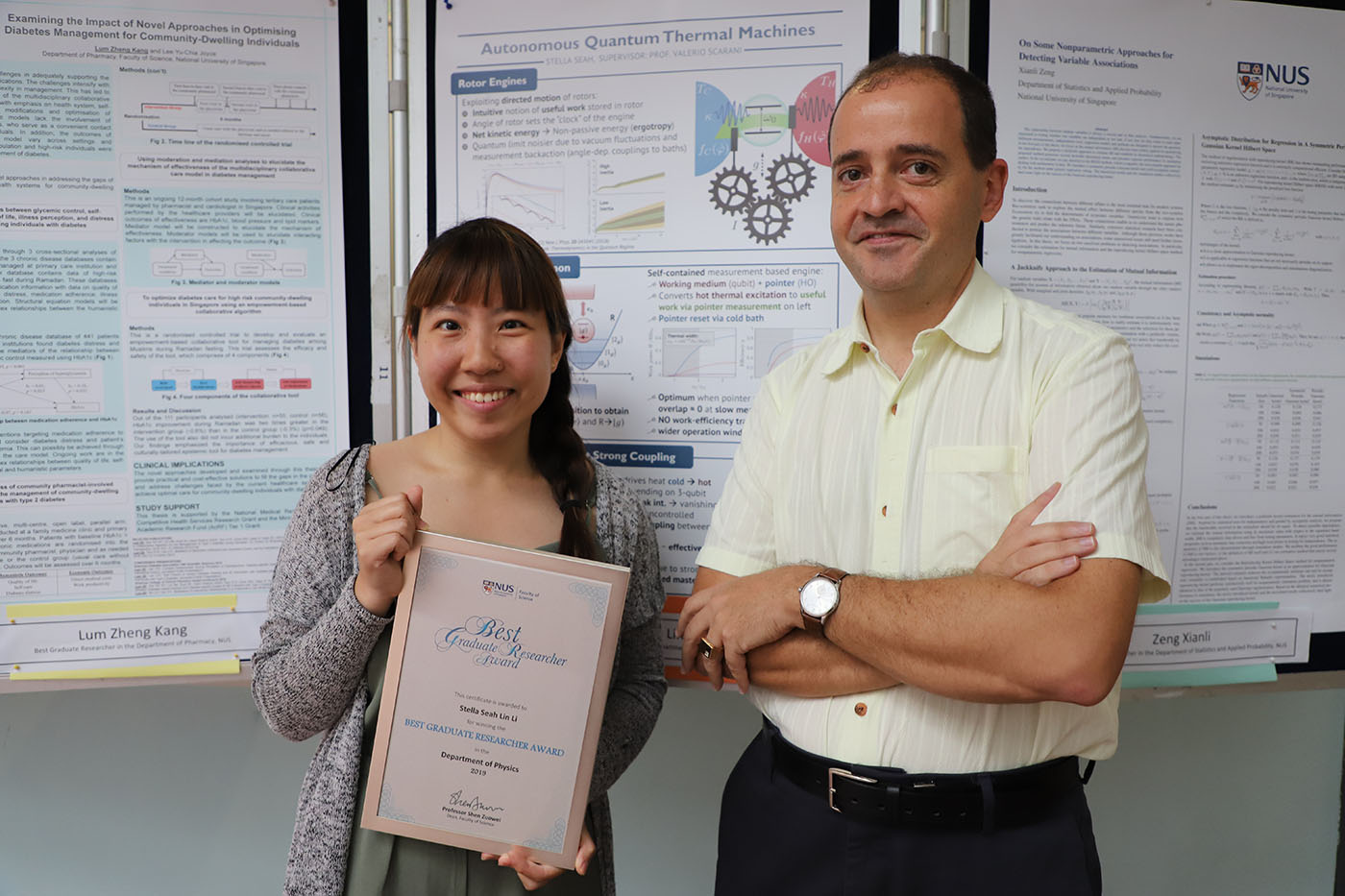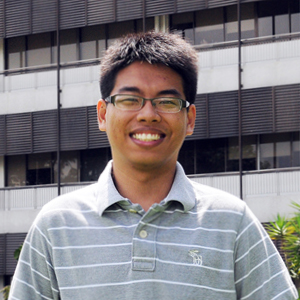Highlights
PhD student Stella Seah wins faculty research award
 Stella Seah with her ‘Best Graduate Researcher Award’, poster and supervisor Valerio Scarani.
Stella Seah with her ‘Best Graduate Researcher Award’, poster and supervisor Valerio Scarani.
For her PhD research on quantum thermodynamics at the Centre for Quantum Technologies, student Stella Seah has received the Best Graduate Researcher Award from the NUS Department of Physics for 2019. The award, which includes a certificate and a $500 prize, was presented in a ceremony on 7 August.
Stella is working in the group of CQT Principal Investigator Valerio Scarani, who recommended Stella for the recognition.
“Her work has proved so original and remarkable that we were invited to contribute a chapter on ‘Rotor engines’ to a collective book,” he says. The book Thermodynamics in the Quantum Regime was published by Springer in 2018.
Thermodynamics is a branch of physics that describes flows of energy, entropy and work. It was developed as a set of principles in the 19th century by scientists and engineers investigating the efficiency of engines. Quantum thermodynamics explores how these principles translate into descriptions of systems where quantum behaviours are present.
Stella has developed models of thermal machines, most recently working on the idea of an autonomous measurement-driven engine. In June, she gave a contributed talk on this project in Finland at the international Quantum Thermodynamics Conference.
Stella has a strong track record at conferences. She has presented talks at the Institute of Physics Singapore Meeting in each of the past three years, and at the International Conference on Challenges in Quantum Information Science in Tokyo in 2018. She has also mentored undergraduates and got involved in outreach: watch her in CQT’s three-part video series on ‘The definition of quantum theory’, particularly in parts 2 and 3.
Quantum physics wasn’t always her path. Stella began her PhD with Valerio through the NUS Department of Physics in 2016, after completing her undergraduate degree at NUS in chemical engineering with a minor in physics.
“I have always been more interested in understanding the fundamental laws of nature and I thought doing a PhD in physics would satisfy this curiosity and at the same time provide the possibility of uncovering and understanding new phenomena,” says Stella.
Learn more
Related Stories
 | Undergraduate honoured with University prize for CQT project November 26 2013 |
Student wins faculty research award February 06 2018 |






